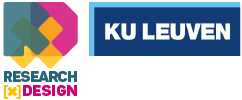BUILD CARE: Building Support for Children & Families Affected by Stroke
Childhood stroke alters the life of children and their families as care continues for many years after stroke onset. The BUILD CARE project aims to, for the first time, investigate the role of the built environment in the everyday life of children and families affected by this rare disease. It will examine both the informal (i.e. home, neighbourhood, school) and formal (i.e. hospital, rehabilitation clinic, outpatient clinic) care environments.
Children and their families, healthcare professionals, and design practitioners will be involved in the project through individual and focus group interviews (in Austria, Belgium and Germany), participatory methods attuned specifically to involve children, floor plan analysis of healthcare facilities and a broadly distributed survey.
Based on the insights gained, design recommendations will be developed and discussed with participating families, Patient Advocacy Organisations, healthcare professionals, and design practitioners. The project results will inform the accommodation, design and delivery of care and improve the everyday life of children and families affected by childhood stroke.
The project is supported by the European Joint Programme on Rare Diseases, and involves collaboration across universities, hospitals and patient advocacy organisations in Austria (Technische Universität Wien & Medizinische Universität Wien), Belgium (KU Leuven, UZ Leuven & Rarity United ASBL), and Germany (Technische Universität Dresden & SCHAKI e.V. – Gemeinnütziger Verein für Familien mit Schlaganfall-Kindern). At KU Leuven the research is conducted by Research[x]Designers Pleuntje Jellema and Piet Tutenel under supervision of Ann Heylighen and Andrea Jelić, in close collaboration with Ruth Heying and Els Ortibus.
.
publications & presentations
- Jellema, P., Tutenel, P., Moser, B., Schoss, A-S., Kevdzija, M., Jelic, A., Heylighen, A. (2024). The Space Between Procedural and Situated Ethics: Reflecting on the Use of Existing Materials in Design Research on Children Affected by Stroke. In: DRS2024 conference proceedings. Presented at the 2024 Design Research Society (DRS) conference: Resistance, Recovery, Reflection, Reimagination, Boston.
Jellema, P., Tutenel, P., Jelic, A. (contr.), Heylighen, A. (contr.) (2023). BUILD CARE: Building Support for Children and Families Affected by Stroke. Invited by Leuven Centre for Health Humanities (LCH²). Online.
